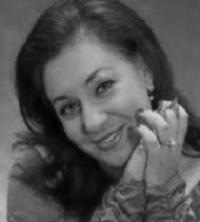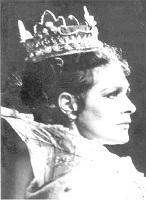Prologue.
Palazzo Grimaldi terrace in Venice. Night Masquerade. The terrace, which overlooks the Giudecca Canal, runs laughing youth. This Liverotto, Gatsella, Vitellotstso, Orsini and Gennaro....Read more
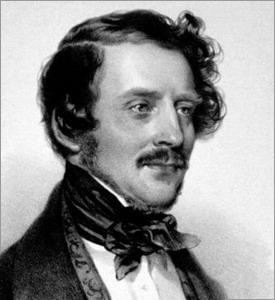
Prologue.
Palazzo Grimaldi terrace in Venice. Night Masquerade. The terrace, which overlooks the Giudecca Canal, runs laughing youth. This Liverotto, Gatsella, Vitellotstso, Orsini and Gennaro. Their last day in Venice, tomorrow go to the court of the Duke of Ferrara Alfonso. For young people secretly watching servant Lucretia Gubetta. Orsini tells of killings and other crimes blamed on the Duke and especially his wife Lucrezia Borgia (Nella fatal di Rimini e memorabil guerra ...). They come to the conclusion that for such acts, it is worthy of death. Gradually fades fun. Gennaro asleep right on the bench on the terrace. The rest go. The channel appears gondola. Gubetto helps to leave it to the lady in the mask. It`s Lucrezia Borgia. She is looking for Gennaro. With love she looks at the sleeping boy. This is her son, who was raised in secret and never knew and had not seen his mother (Com `? Bello! Quale incanto ...). From a distance of Lucretia watches her husband Don Alfonso with his servant Rustigello. Duke thinks that the young man - another lover of Lucretia, and orders Rustigello follow Gennaro. Gennaro wakes. He is surprised by the attention the unknown lady. Lucretius admits that she is the mother Gennaro, but not named. Gennaro delighted, he had long wanted to meet with the mother (Di pescatore ignobile esser figliuol credei ...). Friends back Gennaro. It is their mother. Orsini suddenly discovers a stranger Lucrezia Borgia and rips off her mask. All those present in person throw Duchess murder, called names of the dead men. Lucretia in horror covers his face with his hands. Youth goes, taking weeping Gennaro. Lucretia in despair. Act first. Scene One. Area in Ferrara The crowd welcomed the returning Duke Alfonso. But the duke is not fun. He is jealous of the young wife, as he believes, and tells her lover Rustidzhello find a way to destroy the young man who came to Ferrara (Vieni: la mia vendetta ...). Duke comes to the palace. Of one of the houses goes Gennaro and his friends. After the holiday, they are forgiven. Gennaro, which are struggling to feel solidarity with the mother and friends, decided on a dangerous escapade, he throws off the coat of arms of the Duchess, pictured at the palace, the letter B, leaving the word of the name of Borgia orgia (corruption). From the palace shows Gubetto. All run. Watched the whole incident Rustigello. He is the head of Lucretia Astolph and reports that the Duchess of prestige suffered damages for which the death penalty, and that he knows the culprit. Astolph is in custody, and they go to arrest Gennaro. Act first. Scene Two. In the palace of Don Alfonso Rustigello report to the Duke that Gennaro arrested. Lucrezia appears. She complains of harassment faced in Ferrara, and demands that those responsible for damage to the emblem Borgia was found and executed. Don Alfonso, said that the desire of the Duchess is already satisfied, and ordered to bring Gennaro. Lucretia in horror. She asks her husband to forgive the offender, but the Duke recalls that she had just called for the culprit to abuse of the death penalty, and insists that vengeance done, and take away orders Gennaro back to prison. After a dramatic explanation spouses Duke announces that he agrees to pardon Gennaro. Gennaro again lead to the hall, and the Duke offers him a drink in honor of reconciliation, ordering Lucrezia Borgia lodge gold cups (Guai se ti sfugge un moto ...). Duke leaves. Lucretius explains to his son that in cups Borgia is a poison, and give him the antidote, confirms that she loves him and asks to leave immediately Ferrara, to escape persecution of the Duke (Bevi e fuggi ... te`n prego, o Gennaro ...). In the struggle of feelings Gennaro again wins the love of his mother, he promises to leave, and Lucretia releases it through a secret door. Act II. Scene One. Lane near the house Gennaro Rustigello continues on the orders of the Duke follow Gennaro. The house is suitable Orsini and knocks on the door. Opens Gennaro. Orsini invite others for a farewell dance carnival at Princess Negroni. Tomorrow begins Lent and this is the last chance to have fun. Gennaro said that the mother had promised to leave immediately. Orsini laughs at his obedience. Finally Gennaro decides to take part in the festival, and in the morning to leave. Together with the Orsini he leaves. Rustigello, who had heard the whole conversation, hastened to the palace to tell everything Duke. Act II. Scene Two. Hall in the palace Negroni Orsini and Gennaro join the exhilarating society. It`s all the same friends. In the hall comes Gubetta. Of the Greek merchant, he brought a great noble society Syracuse wine. Youth enthusiastically accepts a gift. They fill the cups. Orsini sings a toast (Il segreto per esser felici ...). Song wafting from the street stops singing penitent monks. Carnival is over, start of Lent. Orsini suddenly becomes ill. Then feel unwell already and all the rest. The doors of the hall open. Lucrezia appears triumphant. She`s not just the Orsini and the company for the insult to her in Venice, and most importantly - for the fact that they tried to oppose it with her son. And now, by sending out Gennaro Ferrara, she sent it on behalf of the Greek poisoned wine. In less than a few minutes, everyone is dead. Lucretia suddenly noticed among the guests Gennaro. She requests that the son took the antidote, but Gennaro did not want to leave friends. He is torn between his feelings of love for the mother and the horror of her crimes (Tu pur qui? Non sei fuggito? ..). Gennaro dies. Includes Duke Alfonso. He came to see the death of the hand Gennaro Lucretia. From Rustigello he knew Gennaro will participate in the festival, but failed to warn his wife. Lucretia reveals the truth - her son Gennaro (Era desso il figlio mio ...). Love for her son was the one bright feeling, but Heaven punished her. Lucretia falls unconscious to the body of his son. Premiered on December 26, 1833 in Milan at La Scala. Õ Close Show records by: listenings count | performer's rating | alphabetical
Richard Bonynge
(conductor)
,
Joan Sutherland
(soprano),
Marilyn Horne
(mezzo-soprano),
National Philharmonic Orchestra (London)
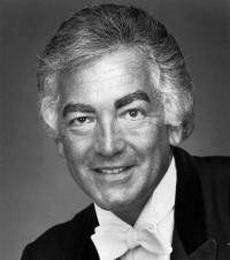
Lucrezia - Joan Sutherland, Gennaro - Giacomo Aragall, Orsini - Marilyn Horne, Alfonso - Ingvar Wixell, Liverotto - Graham Clark, Gazella - Lieuwe Visser, Petrucci - John Brocheler, Vitellozzo - Piero de Palma, Gubetta - Richard Van Allan, Rustighello - Graeme Ewer, Astolfo - Nicola Zaccaria. London Opera Chorus. National Philharmonic Orchestra. August 1977, London.

Inga Kalna
(soprano)
,
Daniele Squeo
(conductor),
Symphony Orchestra of the Moscow State Philharmonic,
Sveshnikov State Russian Choir
Vasso Papantoniou
(soprano)
,
Pierre-Michel LeConte
(conductor),
Jose Carreras
(tenor),
Jose van Dam
(bass baryton),
Orchestre National de France (ORTF)
Jonel Perlea
(conductor)
,
Montserrat Caballe
(soprano),
Shirley Verrett
(mezzo-soprano),
Alfredo Kraus
(tenor),
Orchestra Teatro dell`Opera di Roma
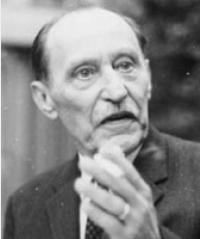
Donna Lucrezia Borgia-Ì. Caballe, Don Alfonso-Ezio Flagello, Gennaro-À. Kraus, Maffio Orsini-Sh. Verret, Rustighello-Giuseppe Barratti, Astolfo-Robert El Hage, Jeppo Liverotto -Franco Riccardi, Apostolo Gazella-Franco Romano, Ascanio Pertucci-Ferrucio Mazzoli, Oloferno Vitellozo-Fernando Iacopucci, Gubetta -Vito Maria Brunetti, Un Servitore-Camillo Sforza, Un Coppiere-Franco Ruta, Voce fuori campo-Andrea Mineo. May 1966, Rome.

Donna Lucrezia Borgia - Montserrat Caballe, Don Alfonso - Kostas Paskalis, Gennaro - Alain Vanzo, Maffio Orsini - Jane Berbie, Jeppo Liverotto - Jerold Siena, Don Apostolo Gazella - Vern Shinall, Ascanio Petrucci - William Wiederanders, Oloferno Vitellozzo - L. D. Clements, Gubetta - Adib Fazah, Rustighello - Mauro Lampi, Astolfo - Arnold Oketaitis. Orchestra: American Opera Society. April 20, New York, 1965 (live).
|
||






